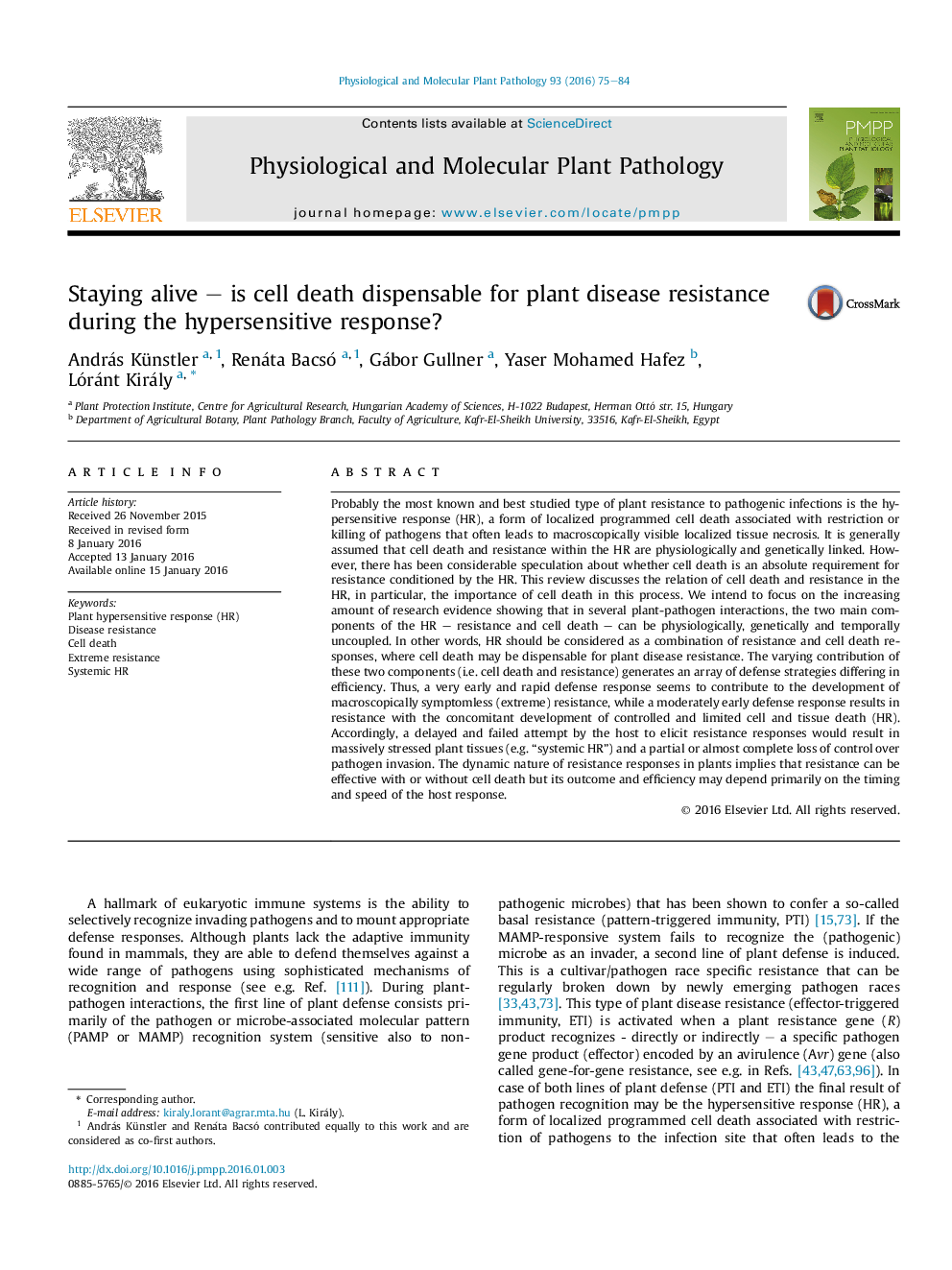| Article ID | Journal | Published Year | Pages | File Type |
|---|---|---|---|---|
| 2836220 | Physiological and Molecular Plant Pathology | 2016 | 10 Pages |
•The two components of plant HR - resistance and cell death – can be physiologically, genetically and temporally uncoupled.•HR should be considered as a combination of resistance and cell death, where cell death may be dispensable for resistance.•The varying contribution of HR cell death and resistance generates an array of defense strategies differing in efficiency.•Early defenses lead to symptomless (extreme) resistance, moderately early defenses confer resistance with cell death (HR).•A delayed host resistance may lead to “systemic HR” with a partial/near complete loss of control over pathogen invasion.
Probably the most known and best studied type of plant resistance to pathogenic infections is the hypersensitive response (HR), a form of localized programmed cell death associated with restriction or killing of pathogens that often leads to macroscopically visible localized tissue necrosis. It is generally assumed that cell death and resistance within the HR are physiologically and genetically linked. However, there has been considerable speculation about whether cell death is an absolute requirement for resistance conditioned by the HR. This review discusses the relation of cell death and resistance in the HR, in particular, the importance of cell death in this process. We intend to focus on the increasing amount of research evidence showing that in several plant-pathogen interactions, the two main components of the HR – resistance and cell death – can be physiologically, genetically and temporally uncoupled. In other words, HR should be considered as a combination of resistance and cell death responses, where cell death may be dispensable for plant disease resistance. The varying contribution of these two components (i.e. cell death and resistance) generates an array of defense strategies differing in efficiency. Thus, a very early and rapid defense response seems to contribute to the development of macroscopically symptomless (extreme) resistance, while a moderately early defense response results in resistance with the concomitant development of controlled and limited cell and tissue death (HR). Accordingly, a delayed and failed attempt by the host to elicit resistance responses would result in massively stressed plant tissues (e.g. “systemic HR”) and a partial or almost complete loss of control over pathogen invasion. The dynamic nature of resistance responses in plants implies that resistance can be effective with or without cell death but its outcome and efficiency may depend primarily on the timing and speed of the host response.
